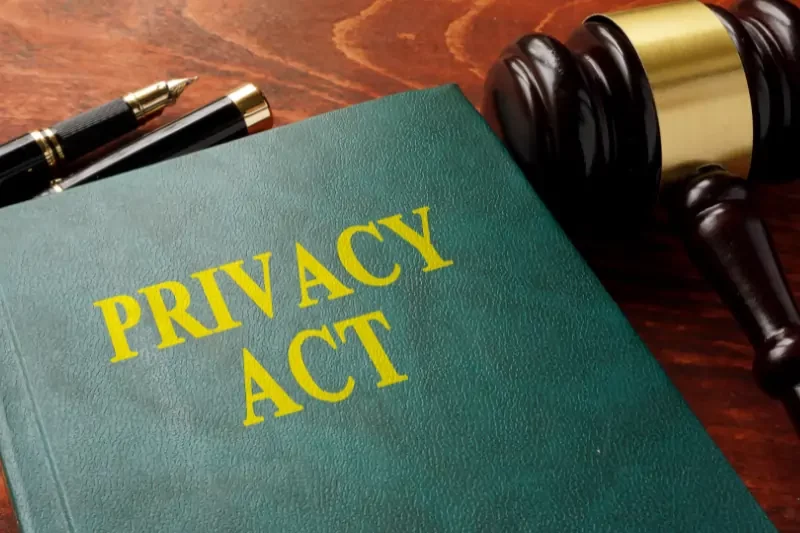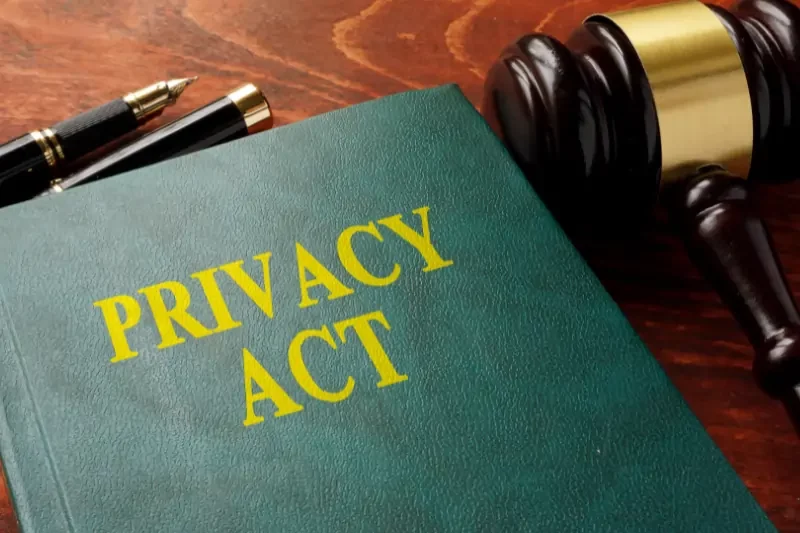
If you’re thinking about selling your home in the Columbus area, you might have heard about the Homebuyers Privacy Protection Act. This legislation affects both buyers and sellers in the housing market, and understanding it can help you navigate the selling process more effectively. As Opelika cash home buyers, we believe knowledge is power in real estate transactions.
What is the Homebuyers Privacy Protection Act?
The Homebuyers Privacy Protection Act is a piece of legislation designed to protect consumers during the home-buying process. Introduced as a senate bill by senators including Bill Hagerty (R-TN) and Jack Reed (D-RI), this act addresses several concerns in the mortgage industry, particularly regarding consumer privacy and predatory lending practices.
The act targets what are known as “trigger leads” – when you apply for a mortgage, your information may be sold to other lenders who then bombard you with competing offers. This can lead to confusion, privacy concerns, and potentially harmful financial decisions. The legislation aims to restrict this practice, ensuring personal information remains protected.
For homeowners looking to sell, understanding this protection act means you can better advise potential buyers about their rights and protections in the financing process. This knowledge can help transactions proceed more smoothly without unexpected complications from mortgage brokers or lenders.
Overview of HOEPA
HOEPA, or the Home Ownership and Equity Protection Act, works alongside the Homebuyers Privacy Protection Act to provide comprehensive consumer protections. Originally passed by Congress as an amendment to the Truth in Lending Act, HOEPA specifically targets high-cost mortgages and aims to prevent abusive practices in the lending industry.
The rules established under HOEPA require lenders to comply with certain requirements when offering loans that exceed specific interest rates or fee thresholds compared to the average prime offer rate. These regulations have evolved through reform efforts, with the Consumer Financial Protection Bureau implementing updated HOEPA rules to address modern lending challenges.
What does this mean if you’re selling your home? Potential buyers using financing options will have these protections, potentially making them more confident in purchasing decisions. This can be beneficial, but the process can add time and complications to your home sale. We buy houses in Smith Station without these financing complications, making the transaction simpler for sellers.
High-Cost Mortgage Regulations
Under the Homebuyers Privacy Protection Act and related legislation, high-cost mortgages face strict regulations to protect borrowers from predatory terms. These mortgages typically have:
- Interest rates that significantly exceed the average prime offer rate
- High fees that can trap consumers in difficult financial situations
- Terms that may include excessive prepayment penalties
- Potentially abusive practices regarding late fees
When a mortgage crosses these thresholds, additional consumer protections kick in. Lenders must provide enhanced disclosures, and certain loan features may be prohibited altogether. For example, balloon payments (large one-time payments at the end of a loan term) are generally not permitted in high-cost mortgages.
If your potential buyer is using a high-cost mortgage, be aware that the closing process may include additional steps and requirements. This could delay your home sale—one reason many homeowners appreciate the benefits of a cash offer in GA, which eliminates mortgage-related complications.
Homeownership Counseling Requirements
An important provision of the Homebuyers Privacy Protection Act and related consumer protection legislation is the requirement for homeownership counseling in certain mortgage situations. When borrowers apply for high-cost mortgages, lenders must provide a written notice about the availability of homeownership counseling.
Borrowers must obtain homeownership counseling from a counselor approved by the Department of Housing and Urban Development before finalizing such loans. This pre-loan counseling serves several purposes:
- Helps consumers understand the full implications of their loan terms
- Provides education about monthly payment obligations
- Explains potential risks associated with certain mortgage products
- Informs borrowers about their rights under various consumer protection laws
For home sellers, this means that potential buyers using certain types of financing will need to complete this counseling, which can add time to the closing process. When selling a distressed property, these additional steps can be particularly burdensome, making alternative selling methods worth considering.

Borrower Protections
The Homebuyers Privacy Protection Act strengthens borrower protections in several ways beyond counseling requirements. These protections address how lenders and credit reporting agencies handle consumer information during the mortgage application process.
Under this legislation, lenders cannot access a consumer’s credit report for marketing purposes unless they have a specified banking relationship with the consumer. This helps prevent the flood of marketing calls and offers many homebuyers experience after applying for a mortgage.
Other important borrower protections include:
- Limitations on how current loan servicers can use customer information
- Restrictions on phone calls from competing lenders during the application process
- Requirements for transparent disclosure of loan terms before signing
- Protection from deceptive advertising practices by mortgage brokers
For sellers, understanding these protections helps you recognize why potential buyers might be cautious or take longer during the financing process. Getting a house ready to sell can be stressful enough without worrying about buyer financing complications. Many sellers appreciate working with home-buying companies that offer straightforward cash transactions.
Equity Protection Act and HOEPA
The Equity Protection Act provisions within HOEPA provide additional safeguards specifically focused on protecting homeowners’ equity—often their largest financial asset. These provisions are particularly relevant when refinancing is involved.
The legislation aims to prevent equity stripping, where lenders charge excessive fees that drain the equity homeowners have built up. Under these regulations, there are limitations on:
- Financing points and fees into the loan amount
- Loan flipping (repeated refinancing that generates fees without benefiting the borrower)
- Mandatory arbitration clauses that might limit a consumer’s legal options
- Lending without regard to the borrower’s ability to repay
If your potential buyer is purchasing your home with financing that falls under these regulations, their lender will face additional scrutiny and requirements. How our home buying process works at Assured Property Solutions eliminates these concerns using a straightforward cash purchase approach.
Prepayment Penalties and HOEPA
Prepayment penalties—fees charged when a borrower pays off a loan early—are significantly restricted under the Homebuyers Privacy Protection Act and HOEPA regulations. For high-cost mortgages, these penalties are generally prohibited entirely, with only limited exceptions in specific circumstances.
For conventional loans that don’t fall under high-cost mortgage definitions, prepayment penalties:
- Cannot extend beyond the first three years of the loan
- Must be disclosed to borrowers before signing
- Are capped at specific percentages of the remaining loan balance
- Cannot be imposed if the loan is refinanced by the same lender
As a seller, you might encounter buyers who are hesitant about certain properties if they’re concerned about future refinancing options and potential penalties. Working with a direct buyer can bypass these concerns entirely. Learn more about our home-buying company to understand how we remove these complications from the selling process.
Selling a House with a High Interest Rate Loan
If you’re selling a home that still has a high-interest rate loan attached to it, the Homebuyers Privacy Protection Act and related regulations become particularly important to understand. These situations can be challenging for several reasons:
First, your potential buyers may face additional scrutiny and requirements if they’re obtaining financing to purchase your property. Their lenders will examine the terms of your existing loan to ensure all regulations are followed.
Second, if your loan contains terms that don’t comply with current regulations, you might need to resolve these issues before closing can proceed. This might involve working with your current loan servicer to address problematic provisions.
Third, disclosure requirements mean you’ll need to be transparent about certain aspects of your existing financing. The National Association of Realtors may have specific guidance on this, but it typically adds layers of complexity to the transaction.
When selling a house with complicated financing, many homeowners find that selling a distressed property directly to a cash buyer eliminates many of these headaches. Get a cash offer today and avoid the complications of navigating complex lending regulations.

Frequently Asked Questions
What is a HOEPA loan?
A HOEPA loan is a high-cost mortgage that falls under the regulations of the Home Ownership and Equity Protection Act. These loans exceed certain thresholds for interest rates or fees compared to standard mortgages. Congress passed these hopes rules as part of Consumer Protection Act legislation to protect bank customers from predatory lending practices.
What loans are not subject to HOEPA?
Loans not subject to HOEPA include:
- Reverse mortgages
- Construction loans
- Open-end credit plans (like home equity lines of credit)
- Loans from housing and urban development programs
- Rural development loans
- Certain refinancing transactions that meet specific requirements
The law provides these exemptions while maintaining protections through other mortgage reform regulations.
What practices does HOEPA prohibit?
HOEPA prohibits several harmful practices in high-cost loans:
- Balloon payments in the first 5 years
- Charging advance fees for loan modifications
- Encouraging consumers to default on existing loans
- Excessive late fees
- Financing points and fees into the loan
- Structuring loans to evade HOEPA rules
- Using trigger leads without proper disclosure
Senators Jack Reed and others championed these enhanced remedies through Senate and House amendments to protect borrowers.
What is equity protection insurance?
Equity protection insurance is a financial product that helps homeowners protect the value of their home investment. It’s designed to shield home ownership equity against market downturns. This type of insurance isn’t directly regulated by the Equity Protection Act but provides consumers with an additional safety net that aligns with the spirit of HOEPA’s protective measures.
What is the equity protection program?
The equity protection program refers to the comprehensive framework established by Congress to prevent predatory lending. The program requires lenders to provide special disclosures, limits certain loan terms, and mandates that borrowers receive counseling from approved homeownership counseling organizations before signing high-cost mortgage agreements. This program represents a key banking reform to protect consumer equity.
What is an equity protector?
An equity protector is a financial professional or service that helps safeguard homeowners’ property value and invested capital. They might work with homeowners to restructure debt, improve credit, or find alternatives to high-cost loans. While not specifically defined in the bill, these professionals often help consumers navigate the complex rules established by consumer protection laws.
What is the meaning of equity stripping?
Equity stripping is a predatory practice where lenders or investors deliberately drain the equity from a property through excessive fees, unnecessary loan products, or repeated refinancing. The Equity Protection Act specifically targets these schemes through provisions that limit how much equity can be converted to fees. For example, charging unnecessary health insurance as part of a mortgage could be considered equity stripping under current legislation.
Conclusion
The Homebuyers Privacy Protection Act represents an important step in protecting consumers during real estate transactions. By regulating high-cost mortgages, requiring homeownership counseling, limiting prepayment penalties, and protecting borrower privacy, this legislation creates a safer environment for both buyers and sellers.
However, these protections also create additional complexity in the traditional home-selling process. For sellers who want to avoid the potential delays and complications associated with buyer financing issues, working with GA or AL cash home buyers can provide a straightforward alternative.
At Assured Property Solutions, we understand the challenges homeowners face when navigating complex regulations like the Homebuyers Privacy Protection Act. Our simplified process eliminates the need to worry about buyer financing falling through or regulatory complications delaying your closing. Contact us to learn how we can help you “sell my house fast Columbus GA“, without the stress of traditional financing contingencies.

